 History
History  History
History  History
History 10 “Modern” Problems with Surprising Historical Analogs
 Health
Health 10 Everyday Activities That Secretly Alter Consciousness
 History
History Top 10 Historical Disasters Caused by Someone Calling in Sick
 Animals
Animals 10 New Shark Secrets That Recently Dropped
 Movies and TV
Movies and TV 10 Forgotten Realities of Early Live Television Broadcasts
 Technology
Technology 10 Stopgap Technologies That Became Industry Standards
 Weird Stuff
Weird Stuff 10 Wild Facts About Taxidermy That You Probably Didn’t Know
 Travel
Travel 10 Beautiful Travel Destinations (That Will Kill You)
 Miscellaneous
Miscellaneous 10 Modern Marriage Rituals Born from Corporate Branding
 History
History 10 Extreme Laws That Tried to Engineer Society
 History
History 10 “Modern” Problems with Surprising Historical Analogs
 Health
Health 10 Everyday Activities That Secretly Alter Consciousness
Who's Behind Listverse?

Jamie Frater
Head Editor
Jamie founded Listverse due to an insatiable desire to share fascinating, obscure, and bizarre facts. He has been a guest speaker on numerous national radio and television stations and is a five time published author.
More About Us History
History Top 10 Historical Disasters Caused by Someone Calling in Sick
 Animals
Animals 10 New Shark Secrets That Recently Dropped
 Movies and TV
Movies and TV 10 Forgotten Realities of Early Live Television Broadcasts
 Technology
Technology 10 Stopgap Technologies That Became Industry Standards
 Weird Stuff
Weird Stuff 10 Wild Facts About Taxidermy That You Probably Didn’t Know
 Travel
Travel 10 Beautiful Travel Destinations (That Will Kill You)
 Miscellaneous
Miscellaneous 10 Modern Marriage Rituals Born from Corporate Branding
10 People Stripped of Honors and Awards
History is replete with people who’ve accomplished great things and were duly recognized. From Nobel laureates to soldiers decorated for valor, many exceptional persons have been honored for their actions. But what happens after that recognition?
Being honored once doesn’t mean the rest of your life will live up to your one great accomplishment. Even if it does, times can change, politics can shift, and one person’s bias can mean the recognition you once enjoyed can be stripped away in a heartbeat.
10 The General Who Wanted To Be Flogged By Little Boys
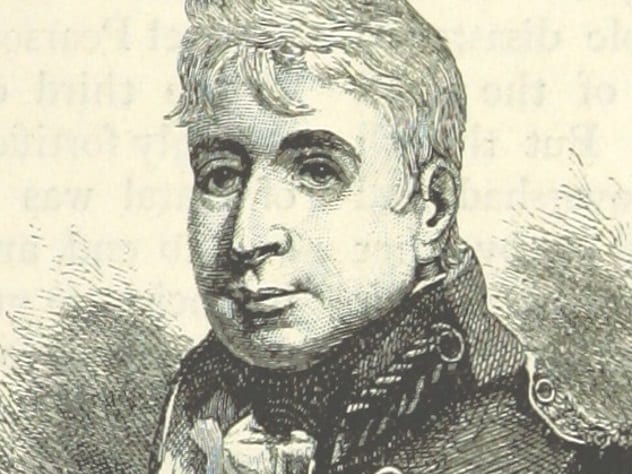
General Eyre Coote had an illustrious military career, for a time. He joined the British royal military at age 14 and was first deployed in America, where he fought on the British side during the Revolutionary War. After returning to England, he then went on to serve in various locales across the world, including Egypt, where he distinguished himself enough to be made a knight of Bath (the form of knighthood usually given for military service). He eventually achieved the rank of general and then went on to serve in several high-ranking political positions.
Although Coote’s career had him climbing the ranks of society, his time stationed in the West Indies was said to have had a lingering “effect on his brain.” Over time, his conduct became so increasingly “erratic” that his superiors decided he was no longer fit for a command. Eventually, he was charged with indecent conduct. Although the case against him was dismissed, the Duke of York was so shocked about its particulars that he had the matter further investigated.
Accounts differ, but it seems that in 1815, Cootes had gone into the Mathematical School at Christ’s Hospital and discussed the topic of flogging with the boys there.[1] He asked if they had ever been flogged. He asked if they could flog him. He offered them money to do it. After a nurse found him engaged in “discussion,” Cootes was initially brought before authorities, and the matter was dropped after he was both declared mentally unsound during the time of his proposal and made a £1,000 donation to the school (at its request, of course.) The later investigation under the Duke of York, however, decided that Cootes was not mad, just eccentric, and that his conduct was inexcusable. Flogging, boyhood, and knighthood apparently being incompatible, he was dismissed from the military in 1816, and his honors as a knight of Bath were stripped.
9 Richard Vogt’s Censored Speech
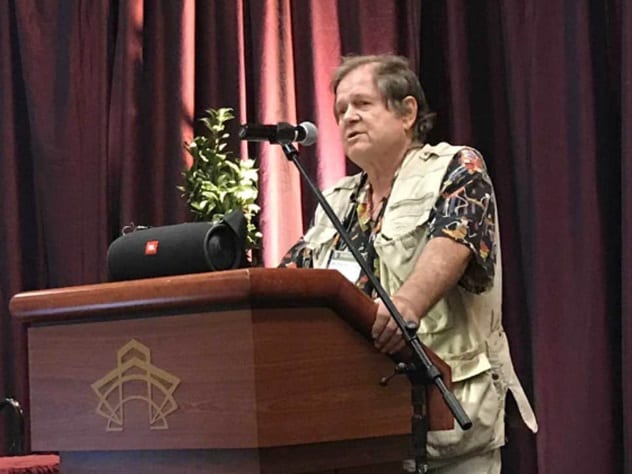
Richard Vogt is a prominent herpetologist, a zoologist specializing in the study of amphibians and reptiles. Vogt’s area of study is turtles. As mundane as studying turtles may sound, he was so renowned in his field that the Herpetologists’ League bestowed him its Distinguished Herpetologist Award during the Joint Meeting of Ichthyologists and Herpetologists in 2018.
It was revoked the very next day.[2]
As far as herpetology is concerned, Vogt’s acceptance speech itself was nothing spectacular. It was the content of the accompanying slides that caused such a stir among amphibian and reptile researchers. Vogt’s slides depicted his female students conducting the fieldwork in bikinis. While that in itself was nothing bizarre, since field-workers often do their research in swimwear, Vogt’s pictures were described as “atypical.” They were so revealing that the audiovisual staff felt they had to place blue boxes over parts of the students.
Having been facing the audience, Vogt was apparently unaware of the censorship during his infamous speech, but he might have noticed when several conference attendees suddenly got up and left. Many said that they wondered why Vogt felt it was appropriate to show those kinds of images during such a prestigious conference. Other herpetologists who’d worked with Vogt said that he’d been making similar presentations for the past 20 years.
8 The Nobel Prize-Winning Nazi
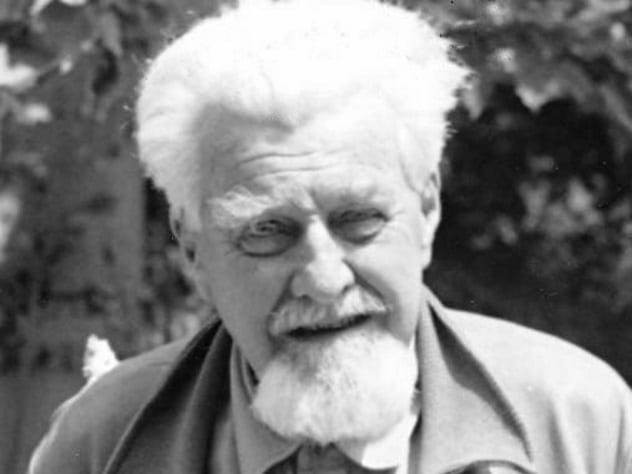
Konrad Lorenz was a zoologist and animal psychologist who studied imprinting in baby animals. His work earned him the Nobel Prize in Physiology or Medicine in 1973. In 1940, he became a professor at the University of Konigsberg and served as a German army doctor in World War II until he was captured by Russians. After the war, he resumed his educational career and was awarded at least one honorary doctorate for his achievements.
His honorary doctorate at the University of Salzburg, however, was revoked when it came to light that Lorenz had failed to mention he was once a staunch Nazi serving in Germany’s Office of Racial Policy.[3] An article published by the New York Academy of Sciences stated that he had at one point called for the extermination of certain portions of the population. Aside from this, he had published papers deeming the inferiority of certain classes.
While some consider his papers written during Hitler’s reign “political naivety,” and Lorenz himself attributed his Nazi racial terminology as attempts to provide clarity, others say that he should never have been given a Nobel prize in the first place. Nevertheless, stripping individuals of the Nobel prize is against the Nobel Committee’s rules. It says that the award is given for a person’s achievements, regardless of whatever else they have done.
7 The Royal Photographer, Undone
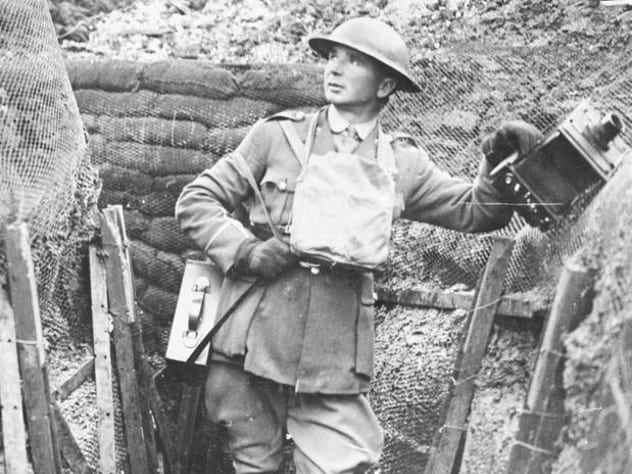
Ernest Brooks joined the British military at a very young age and was then introduced to photography while in the service of Lady Vivian, the widow of a former British lieutenant general. Brooks photographed Lady Vivian’s guests, and when he managed to sell some of his photos to the local newspaper, it helped spark his desire to pursue a career in photography.[4]
Brooks used his many connections to eventually land a position as the royal family’s official photographer. He then gained even more fame and prestige photographing the British perspective of World War I. Although Brooks was interested in photographing the reality of war and did not want his photographs to be used for propaganda, the British government used many of his pictures for that very purpose. This won him further renown, albeit not in the way he had wanted.
But for years, the royal family had been dealing with media they found objectionable. The reasons for Brooks’s dismissal were never revealed, but his closeness to the royal family and the (perhaps unwanted) intimacy of the photos that his situation allowed may have played a role in him being stripped of all honors, including the medal for the Civil Division of the Most Excellent Order of the British Empire, in 1925. His name was also erased from the official registrar.
Whatever prompted the royal family to dole out such a severe punishment to their longtime photographer, Brooks’s fate served as a warning to other photographers and cartoonists who were producing art that the monarchy considered unflattering. However, the very public dismissal of their photographer and erasure of his honors only drew more attention to Brooks’s work and encouraged more like it.
6 The Night Raider
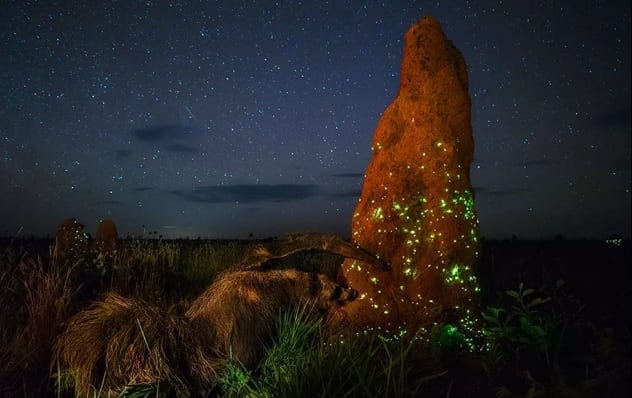
Every year, the Natural History Museum in London has a photography contest. The 2017 winner of the Wildlife Photographer of the Year in the Animals in their Environment Category was Marcio Cabral, with his striking photo of an anteater approaching a termite mound speckled with bioluminescence. Cabral had stated that he had spent several rain-soaked days at Brazil’s Emas National Park before the anteater in the photograph arrived. Not long after Cabral won the contest, however, the museum received an anonymous tip that the anteater was stuffed.
A taxidermied anteater is kept on display near the visitors’ center at a gate in Emas National Park. The museum set five experts to the task of investigating if the anteater in the picture was, in fact, real or the very same specimen. The experts, consisting of three mammal experts, an anteater expert, and a taxidermy expert, all did independent investigations and concluded that the animal in the picture and the taxidermy specimen were too similar to be different animals.[5] To Cabral’s credit, he did hand over the raw image files taken before and after the anteater in question appeared, though none of them showed the animal. He also produced a witness saying that he, too, saw the anteater and strongly denies that the picture was staged.
The museum stuck to its decision, however, and disqualified Cabral from the competition. But while he was stripped of his Photographer of the Year award, another winner cannot be named because the judging is done without the names attached to the entry photographs.
5 Miss Earth Lebanon Stripped Of Title After Posing With Miss Earth Israel

The Miss Earth pageant is a beauty pageant designed to promote environmental awareness. The 2018 pageant, however, made headlines for all the wrong reasons. There were 89 countries from all over the globe participating, including Lebanon and Israel. When Miss Earth Lebanon posed for a photo with Miss Earth Israel, she was soon stripped of her title by Lebanese pageant organizers.[6]
Lebanese law prohibits visitations to Israel or associating with Israelis. After the photo of the pair hit social media, Miss Earth Lebanon lost her title for violating her country’s law. A former Miss Universe contestant from Lebanon also landed in hot water after a selfie with Miss Israel surfaced but was let off with a warning after she said the photo was not taken by her and that she was “ambushed.” Salwa Akar, the former Miss Earth Lebanon, said that when Miss Earth Israel approached her speaking Arabic, she did not know who she was, but Lebanese officials said that her identity was clearly written on her sash and upheld the decision.
After the story hit the news, the Arabic-language spokesman for Prime Minister Benjamin Netanyahu reposted the picture on Twitter, condemning the the revocation of Akar’s title. Akar herself only uploaded a post on Facebook that did not mention the incident.
4 Little House On The Prairie Deemed Racist
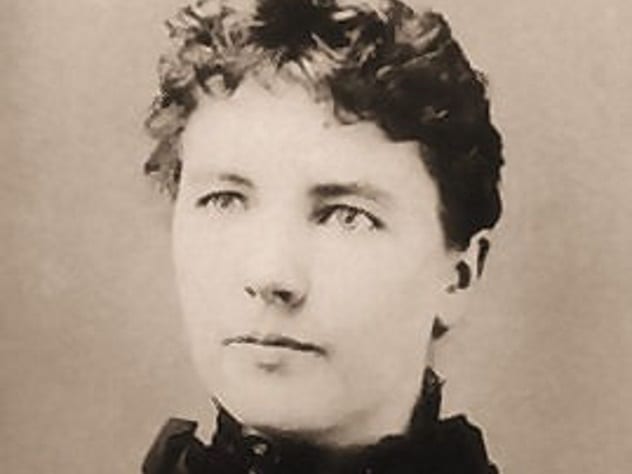
The Laura Ingalls Wilder Medal was given to authors who’ve made an impact in children’s literature. The award was not given by Wilder herself, nor was it even created by her, but rather the Association for Library Service to Children. They wanted to honor her contribution to children’s literature with her Little House on the Prairie series by naming the award after her. The series was somewhat based on her own life growing up on the plains of the United States, and it gained an even wider audience and even more popularity when it was later made into a television show. As for the award, Wilder herself was the first to receive it in 1954, a few years before her death (although the greater honor was obviously having the award named after her).
That honor, however, was recently retracted. The book series was espoused as family-friendly, but it portrays minorities very negatively and Native Americans as inhuman. It was for this reason that the Association for Library Service to Children decided to remove her name from it. They now call it the “Children’s Literature Legacy Award.” Some think the decision is overlaying modern values on the past, but the Association made their choice because they believe that the values expressed in the Little House on the Prairie series do not align with their own values of inclusiveness and respect.[7]
3 A Happy Ending For A Sex Toy Company Stripped Of Its Prize

Lora DiCarlo is a company that makes robotic sex toys. It developed a female massager that mimics the sensation of human touch and put it on display at the 2019 Consumer Electronics Show. The judges were so impressed by LoraDiCarlo’s product that it received an award in the robotics category. The honor, however, was soon taken away.
The Consumer Technology Association reneged on their award, saying that the product was considered immoral or obscene and did not fit its image. Given that they had known what the product was when they gave it a place in the show, that their judges had given it high marks, and that men’s sex dolls and VR porn are displayed at the show every year, Lora DiCarlo lodged a complaint. They stated that while the CTA seemed perfectly fine with men’s sexuality, when a female sexual product was honored, subsequently calling it obscene was discrimination.
But the tale of the Ose (the name of the female massager) has a happy ending. The founder of YouPorn heard of the company’s plight and offered $50,000 in free advertising for the Ose when it finally hit the market. And in May 2019, the award was reinstated.[8]
2 Aung San Suu Kyi’s Rise And Fall

Aung San Suu Kyi was the darling of the international community when she received the Nobel Peace Prize while under house arrest in Myanmar. Her relentless work for democracy in Myanmar led not only to the Nobel Prize committee awarding her with its distinguished honor but many other organizations bestowing her with additional awards.
Suu Kyi eventually rose to power in Myanmar as the leader of her Buddhist-majority civilian administration. Although Myanmar forbids the parents or spouses of foreign nationals from becoming president, Suu Kyi was given the title of “state counselor.” The president served as her aid. The military still had veto power over certain aspects of government rule, but progress toward democracy seemed to be moving ahead.
And it seemed to stall just as quickly. The nation’s Rohingya Muslim minority began migrating from Myanmar to Bangladesh after an army crackdown. When the media called the crises “ethnic cleansing,” Suu Kyi was quick to call that “too strong” a label. The genocide was met with a downplayed response from Suu Kyi despite her being viewed as Myanmar’s moral authority.
Calls for Suu Kyi to be stripped of her Nobel Prize arose. Much like Lorenz, however, the Nobel Committee stated that the prize was awarded for her past actions and would not strip her of the award no matter the outcry.
Other organizations had no such rules, however. Amnesty International no longer acknowledges her as a beacon of human rights.[9] Suu Kyi has likewise lost many of the honors and honorary citizenships given to her due to her denial of human rights violations occurring under her nose.
1 The Soviet Spy Knighted By The Queen
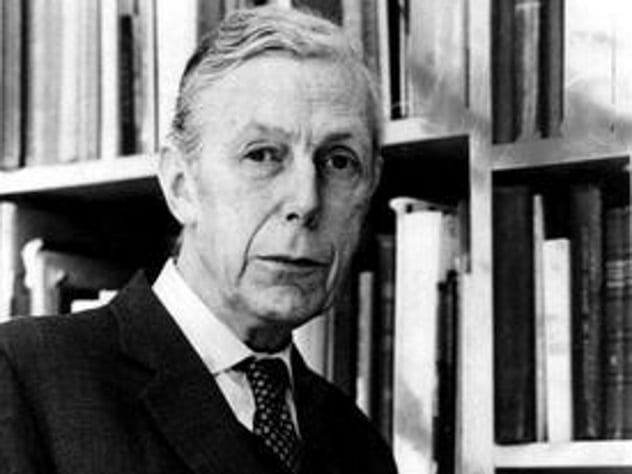
When Anthony Blunt arrived at Cambridge University, socialism was trending among faculty and students, and he became a communist. He then joined the Cambridge Apostles, a group that believed in no moral restraint except loyalty to friends. Among the group was his lover, Guy Burgess, who eventually approached him about becoming a Soviet spy. Displeased with the social and economic climate of Britain, Blunt accepted.[10]
During World War II, Blunt joined the British army and served in the Army Intelligence Corps. When he returned to England, he was recruited by MI5 and became the head of the division that dealt with communications with foreign embassies. He was the perfectly placed spy and so trusted by the British that he was selected to go on a secret mission for the royal family to obtain potentially damaging documents about the Duke of Windsor’s close connections with Hitler.
Blunt successfully obtained the documents, and he believed they would serve as an insurance policy when he later retired from both MI5 and (somewhat) Soviet spying to become the surveyor of the queen’s pictures. He believed that even if he were outed as a spy, the papers would protect him because the royal family wouldn’t want their secret exposed. Blunt was knighted for his service to England in 1956.
But Blunt was part of a large spy ring, and he’d positioned many operatives himself. When several were caught, the trail inevitably led back to him. While his own “insurance” proved of little value, those in authority decided that the tentative political climate of Britain at the time couldn’t suffer such a scandal. Blunt was offered immunity from prosecution if he confessed, and he did not have to resign from his position as picture surveyor. His treason remained unknown to the public until a book was published detailing the spy ring’s activities. This prompted the government to make a statement explaining why Blunt had not been prosecuted. Authorities stuck to his cooperation deal, but they did strip him of his knighthood.
Mike lives on the East Coast and spends too much on beach parking.
Read more stories of the lauded falling from grace on Top 10 Disgraced Captains Who Abandoned Ship and 10 Disgraced Scientists Who Presented Fiction As Fact.








